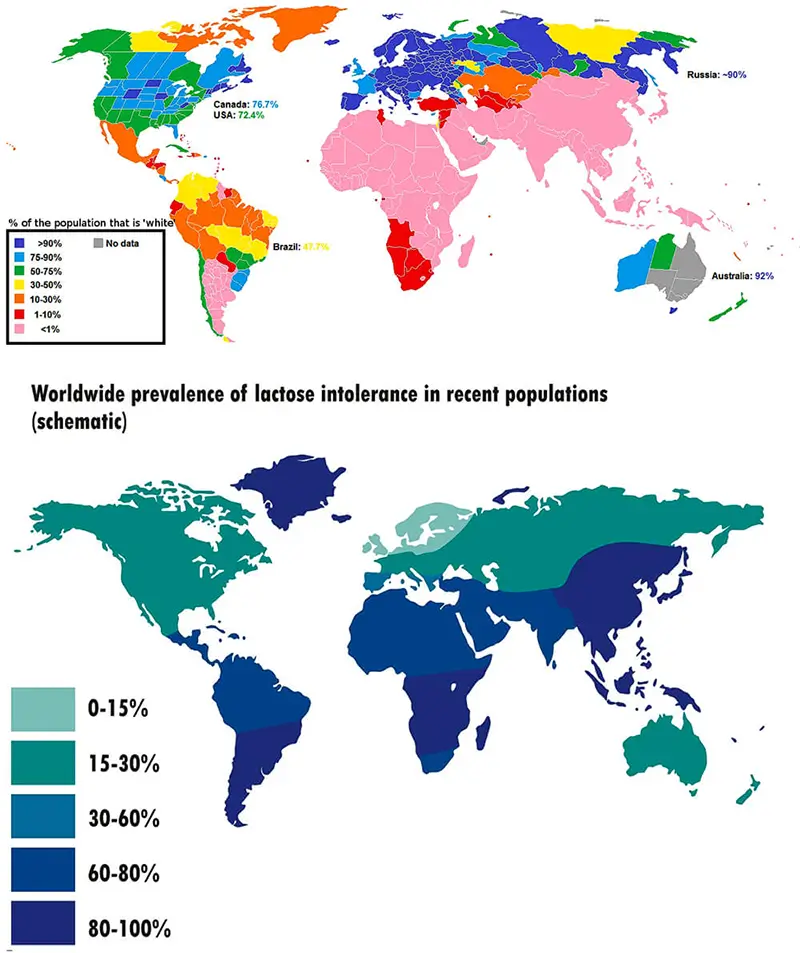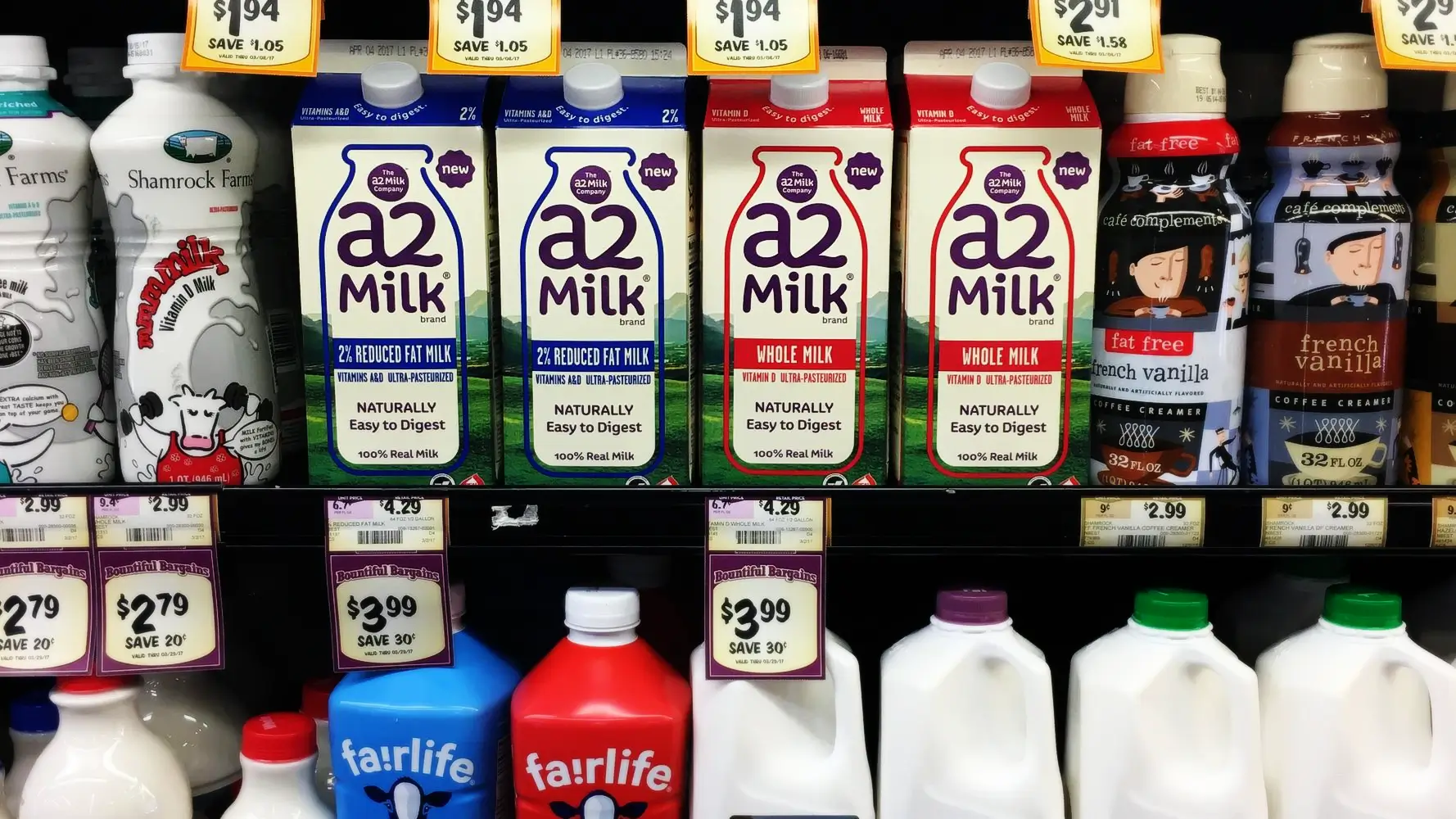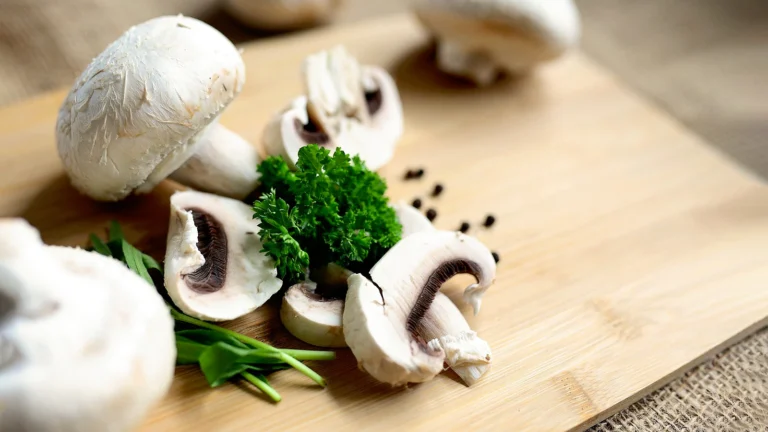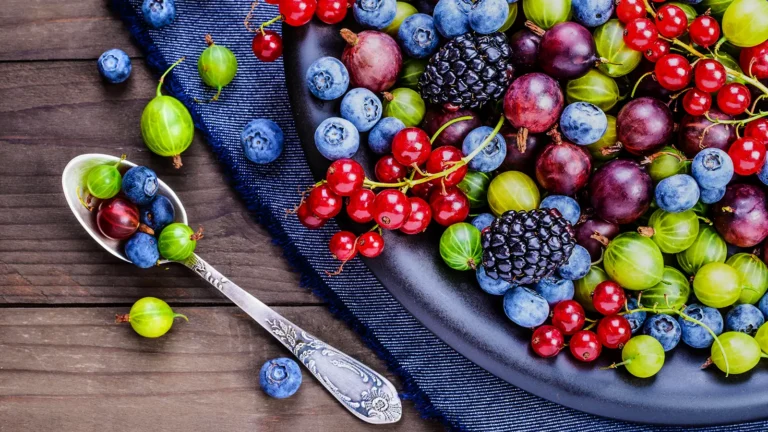La intolerancia a la lactosa - el 65% de probabilidad de tener
Las personas de ascendencia europea pueden tomar leche y el resto del mundo tiene intolerancia a la lactosa. Sin embargo, hay sustancias en la leche que ninguno de nosotros tolera.
Milos Pokimica
Escrito por: Milos Pokimica
Revisado Médicamente Por: Dr. Xiùying Wáng, M.D.
Actualizado el 7 de mayo de 2023Las personas de ascendencia europea pueden tomar leche y el resto del mundo tiene intolerancia a la lactosa. Los africanos negros son intolerantes a la lactosa en un 98% y las cifras de intolerancia a la lactosa en Asia son similares (Ugidos-Rodríguez et al.)[1].
La investigación científica confirmó en diferentes estudios sobre el genoma europeo antiguo que los cazadores-recolectores de Europa no podían digerir la lactosa de la leche hace 8.000 años. Los primeros europeos que domesticaron animales salvajes tampoco podían consumir leche. Los colonos que llegaron de Oriente Próximo hace unos 7800 años también tenían intolerancia a la lactosa. Los pastores yamnaya que llegaron a Europa desde las estepas orientales hace unos 4800 años también tenían intolerancia a la lactosa.
No fue hasta hace unos 4.300 años, a principios de la Edad de Bronce, cuando la tolerancia a la lactosa se extendió por toda Europa (Gamba et al.)[2]. Si observamos el mundo actual, la mayoría de la población sigue sin poder digerir la leche. Si las personas intolerantes a la lactosa consumen productos que contienen lactosa, pueden sufrir hinchazón, náuseas, dolor abdominal, flatulencia y diarrea.
La lactosa se descompone en un azúcar normal utilizable mediante una enzima específica llamada lactasa, creada por las células de la pared del intestino delgado (Storhaug et al.)[...3]. La producción de lactasa se desactiva en los mamíferos en la edad adulta porque los mamíferos sólo amamantan en los primeros periodos tras el nacimiento. Más adelante en la vida, en condiciones medias, no es necesario disponer de esta enzima porque ningún mamífero volverá a amamantar, excepto los humanos. Los mamíferos adultos no amamantan y el organismo está adaptado a desactivar las enzimas para ahorrar energía. Al domesticar animales salvajes y ordeñarlos, los primeros agricultores cambiaron las condiciones de su hábitat, y con el tiempo los organismos se adaptaron.
Hoy en día, sólo los descendientes de granjeros europeos pueden digerir la leche. Los negros africanos no. Los asiáticos no pueden. La estadística de la intolerancia a la lactosa es la siguiente. Aproximadamente el 65 por ciento de toda la población humana tiene una capacidad reducida para digerir la lactosa después de la infancia. En comparación, el 5 por ciento de las personas descendientes de europeos del norte son intolerantes a la lactosa.
Sin embargo, hay muchas sustancias en la leche que no podemos tolerar. Aunque seamos de países donde se consume mucha leche, seguimos sin poder digerir bien cosas como el colesterol, una forma de lactomorfina llamada casomorfina y el estradiol (el consumo de lácteos representa entre el 60 y el 80 % de todo el estrógeno que se consume en una dieta típica). dieta americana). Los opiáceos de la leche materna producen un efecto sedante en el lactante. Ese efecto sedante es responsable en buena medida del vínculo madre-hijo. La leche tiene un efecto similar al de una droga en el bebé (o en las crías de otros mamíferos), y garantiza que el bebé establezca un vínculo con la madre y proceda a la lactancia y obtenga los nutrientes. Es una adaptación evolutivamente beneficiosa. Al igual que la heroína o la codeína, las casomorfinas ralentizan los movimientos intestinales y tienen un efecto antidiarreico. El efecto opiáceo es la razón por la que el queso puede estreñir al igual que los analgésicos opiáceos.
La lactasa es una enzima que permite al organismo digerir el azúcar de la leche, y ese azúcar es la lactosa. Los daneses sólo tienen un 2% de intolerancia a la lactosa.
Todos los mamíferos tras el rechazo de la lactancia son deficientes en lactasa. No tienen contacto con la leche más adelante en la vida. Las reacciones de cualquier organismo que no necesite utilizar el azúcar lactosa en la edad adulta consisten en desactivar la enzima lactasa a nivel de los genes. Excepto los granjeros europeos, que obligaron a sus organismos durante miles de años a consumirla.
Así, los daneses de hoy sólo son 2% no tolerantes, los finlandeses 18%, los indios 50%, los judíos israelíes 58%, los afroamericanos 70%, los judíos asquenazíes 78%, los árabes 78%, los taiwaneses 85%, los grecochipriotas 85%, los japoneses 85%, los tailandeses 90%, los filipinos 90%, los africanos negros más de 90% (Storhaug et al.)[3]. La OMS ha aumentado esa cifra, afirmando que se sitúa entre el 95% y el 100%, para los indios entre el 90 y el 100, para los asiáticos entre el 90 y el 95, para los mediterráneos entre el 60 y el 75, para los norteamericanos entre el 10 y el 15 y para los europeos entre el 5 y el 10 por ciento.
El verdadero problema es que, aunque seamos tolerantes a la lactosa, ésta se metaboliza de forma antinatural y no debe consumirse durante un periodo prolongado. Tenemos la enzima lactasa que descompone el azúcar lactosa en dextrosa y galactosa. La mitad es glucosa y la otra mitad galactosa.
Sin embargo, la galactosa no puede utilizarse hasta que se digiere en glucosa. Las células sólo utilizan la glucosa como combustible. Existe una enzima llamada beta-galactosidasa que transforma la galactosa en la glucosa que necesitamos. Sin embargo, como ningún animal necesita esta enzima después del rechazo, esta enzima está desactivada para siempre. Todos, todos los humanos del planeta Tierra si es un individuo adulto tiene deficiencia de galactosidasa. Todos los que estáis leyendo esto ahora y yo tenemos una deficiencia de beta-galactosidasa. Esto significa que si consumes azúcar de la leche, es decir lactosa, si eres tolerante a la lactosa puedes utilizarla, tienes lactasa. La lactasa metaboliza la lactosa y obtendrás glucosa y además galactosa. La glucosa se utilizará normalmente. Y con la galactosa, ¿qué vamos a hacer? No podemos usarla así que ¿a dónde va la galactosa?
Una parte se expulsa al exterior a través de la piel. Una parte acaba en los ojos y se almacena en la córnea. Las cataratas de los ancianos proceden de la galactosa. Los adultos que consumen grandes cantidades de leche, y tienen una elevada actividad de lactasa, suelen sufrir acumulación de galactosa en el lóbulo ocular y tienen una alta probabilidad de padecer cataratas de la tercera edad (4).4].
No sólo eso, sino que también se almacena en el cuerpo en otros lugares. En las mujeres se acumula alrededor de los ovarios, y se asocia con el cáncer de ovarios y la infertilidad. Una de cada cuatro parejas acude a tratamientos de infertilidad en los países europeos. En los países africanos, donde no usan leche, no tienen problemas de infertilidad. Se desconoce como enfermedad. En el estudio Daniel W. Cramer Harvard Medical School (Mustafa et al.)[5] un vínculo entre el consumo de la galactosa y el aumento del riesgo de cáncer de ovario Se observó que las mujeres intolerantes a la lactosa tienden a consumir menos lactosa. Llegaron a la conclusión de que: “Este hallazgo sugiere que una menor ingesta de lactosa en las primeras etapas de la vida puede reducir el riesgo de cáncer de ovario, aunque se necesitan más estudios para confirmar este hallazgo”. En el caso de las mujeres tailandesas, por ejemplo, que no consumen leche, no existe infertilidad a un nivel estadísticamente significativo. En Tailandia, donde el 98% de los adultos son intolerantes a la lactosa, la fertilidad media entre las mujeres de 35 a 39 años era solo un 26% inferior a la tasa máxima para las edades de 25 a 29 años. En Australia y el Reino Unido, donde la intolerancia a la lactosa afecta solo al 51 % de los adultos, las tasas de fertilidad de las mujeres de entre 35 y 39 años son un 82 % inferiores a la tasa máxima de las mujeres de entre 25 y 29 años.
Además de los riesgos del consumo de leche en individuos tolerantes a la lactosa pueden beber leche, ¿qué ocurrirá cuando un individuo que no es tolerante a la lactosa beba leche? El azúcar de la leche no se digerirá. Las bacterias del intestino descompondrán la lactosa. Las bacterias comenzarán a multiplicarse, esto aumenta la presión osmótica, el fluido fluye hacia los intestinos y el individuo tiene diarrea.
Después de la Segunda Guerra Mundial, Estados Unidos tenía una gran reserva de leche en polvo que tenía que eliminar de alguna manera. En lugar de eso, decidió que, dado que existía un “déficit proteico”, enviaría esa leche en polvo a África como ayuda humanitaria. Muchos niños y bebés que ya estaban desnutridos sufrieron diarrea por consumirla. Los países africanos que recibieron leche en polvo como ayuda humanitaria experimentaron un aumento de la mortalidad, especialmente entre los niños pequeños que ya se encontraban en un estado de desnutrición grave.
Referencias:
Pasajes seleccionados de un libro: Pokimica, Milos. Go Vegan? Examen de Ciencias de la Parte 1. Kindle ed., Amazon, 2018.
- Ugidos-Rodríguez, Santiago, et al. "Malabsorción e intolerancia a la lactosa: A Review". Alimentación y función, vol. 9, nº 8, Royal Society of Chemistry, agosto de 2018, pp. 4056-68. https://doi.org/10.1039/c8fo00555a.
- Gamba, Cristina et al. "Flujo y estasis del genoma en un transecto de cinco milenios de la prehistoria europea". Comunicaciones de la naturaleza vol. 5 5257. 21 oct. 2014, doi:10.1038/ncomms6257
- Storhaug, Christian Løvold et al. "Country, regional, and global estimates for lactose malabsorption in adults: a systematic review and meta-analysis". La lanceta. Gastroenterología y hepatología vol. 2,10 (2017): 738-746. doi:10.1016/S2468-1253(17)30154-1
- Arola, H, y A Tamm. "Metabolismo de la lactosa en el cuerpo humano". Revista escandinava de gastroenterología. Suplemento vol. 202 (1994): 21-5. doi:10.3109/00365529409091741
- Mustafa, Osama M., y Yassine J. Daoud. "Is Dietary Milk Intake Associated With Cataract Extraction History in Older Adults? An Analysis From the US Population". Revista de Oftalmologíavol. 2020, Hindawi Publishing Corporation, febrero de 2020, pp. 1-7. https://doi.org/10.1155/2020/2562875.
- Merritt, Melissa A et al. "Alimentos lácteos y nutrientes en relación con el riesgo de cáncer de ovario y los principales subtipos histológicos". Revista internacional del cáncer vol. 132,5 (2013): 1114-24. doi:10.1002/ijc.27701
¿Tienes alguna duda acerca de la nutrición y la salud?
Me encantaría saber de usted y responderlas en mi próxima publicación. Agradezco sus aportes y opiniones y espero tener noticias suyas pronto. También te invito a síguenos en Facebook, Instagram y Pinterest para más contenidos sobre dieta, nutrición y salud. Puedes dejar un comentario allí y conectar con otros entusiastas de la salud, compartir tus consejos y experiencias, y recibir apoyo y ánimo de nuestro equipo y nuestra comunidad.
Espero que este post le haya resultado informativo y ameno y que esté preparado para aplicar los conocimientos adquiridos. Si le ha resultado útil, por favor compártelo con tus amigos y familiares que también podrían beneficiarse de ella. Nunca se sabe quién puede necesitar orientación y apoyo en su camino hacia la salud.
– También Te Puede Interesar –

Aprenda Sobre Nutricion
Milos Pokimica es doctor en medicina natural, nutricionista clínico, escritor sobre salud médica y nutrición y asesor en ciencias de la nutrición. Autor de la serie de libros Go Vegan? Revisión de la Ciencia, también dirige el sitio web sobre salud natural GoVeganWay.com.
Descargo De Responsabilidad Médica
GoVeganWay.com le ofrece reseñas de las últimas investigaciones relacionadas con la nutrición y la salud. La información proporcionada representa la opinión personal del autor y no pretende ni implica sustituir el asesoramiento, diagnóstico o tratamiento médico profesional. La información proporcionada tiene fines informativos únicamente y no pretende sustituir la consulta, el diagnóstico y/o el tratamiento médico de un médico o proveedor de atención médica calificado.NUNCA ignore el CONSEJO MÉDICO PROFESIONAL O RETRASAR la BÚSQUEDA de TRATAMIENTO MÉDICO a CAUSA DE ALGO QUE HAYA LEÍDO EN O accesibles a TRAVÉS de GoVeganWay.com
NUNCA APLICAR CUALQUIER cambio de ESTILO de vida O CAMBIOS EN su totalidad COMO UNA CONSECUENCIA DE ALGO QUE HA LEÍDO EN GoVeganWay.com ANTES de CONSULTAR con LICENCIA PROFESIONAL MÉDICO.
En el caso de una emergencia médica, llame a un médico o al 911 inmediatamente. GoVeganWay.com no se recomienda ni aprueba ninguna de los grupos, las organizaciones, las pruebas, los médicos, productos, procedimientos, opiniones u otra información que pueda ser mencionado en el interior.
Selecciones del editor –
Milos Pokimica es escritor especializado en salud y nutrición y asesor en ciencias nutricionales. Autor de la serie de libros Go Vegan? Revisión de la Ciencia, también dirige el sitio web sobre salud natural GoVeganWay.com.
Últimos artículos -
Top Noticias De Salud — ScienceDaily
- The overlooked nutrition risk of Ozempic and Wegovyen febrero 4, 2026
Popular weight-loss drugs like Ozempic and Wegovy can dramatically curb appetite, but experts warn many users are flying blind when it comes to nutrition. New research suggests people taking these medications may not be getting enough guidance on protein, vitamins, and overall diet quality, increasing the risk of muscle loss and nutrient deficiencies.
- A 25-year study found an unexpected link between cheese and dementiaen febrero 4, 2026
A massive Swedish study tracking nearly 28,000 people for 25 years found an unexpected link between full-fat dairy and brain health. Among adults without a genetic risk for Alzheimer’s, eating more full-fat cheese was associated with a noticeably lower risk of developing the disease, while higher cream intake was tied to reduced dementia risk overall. The findings challenge decades of low-fat dietary advice but come with important caveats.
- MIT’s new brain tool could finally explain consciousnessen febrero 4, 2026
Scientists still don’t know how the brain turns physical activity into thoughts, feelings, and awareness—but a powerful new tool may help crack the mystery. Researchers at MIT are exploring transcranial focused ultrasound, a noninvasive technology that can precisely stimulate deep regions of the brain that were previously off-limits. In a new “roadmap” paper, they explain how this method could finally let scientists test cause-and-effect in consciousness research, not just observe […]
- Why heart disease risk in type 2 diabetes looks different for men and womenen febrero 4, 2026
Scientists are digging into why heart disease risk in type 2 diabetes differs between men and women—and sex hormones may be part of the story. In a large Johns Hopkins study, men with higher testosterone had lower heart disease risk, while rising estradiol levels were linked to higher risk. These hormone effects were not seen in women. The results point toward more personalized approaches to heart disease prevention in diabetes.
- Sound machines might be making your sleep worseen febrero 4, 2026
Sound machines may not be the sleep saviors many believe. Researchers found that pink noise significantly reduced REM sleep, while simple earplugs did a better job protecting deep, restorative sleep from traffic noise. When pink noise was combined with outside noise, sleep quality dropped even further. The results suggest that popular “sleep sounds” could be doing more harm than good—particularly for kids.
- This unexpected plant discovery could change how drugs are madeen febrero 3, 2026
Plants make chemical weapons to protect themselves, and many of these compounds have become vital to human medicine. Researchers found that one powerful plant chemical is produced using a gene that looks surprisingly bacterial. This suggests plants reuse microbial tools to invent new chemistry. The insight could help scientists discover new drugs and produce them more sustainably.
- A hidden cellular process may drive aging and diseaseen febrero 3, 2026
As we age, our cells don’t just wear down—they reorganize. Researchers found that cells actively remodel a key structure called the endoplasmic reticulum, reducing protein-producing regions while preserving fat-related ones. This process, driven by ER-phagy, is tied to lifespan and healthy aging. Because these changes happen early, they could help trigger later disease—or offer a chance to stop it.
PubMed, #Dieta vegana –
- Diet type and the oral microbiomeen febrero 2, 2026
CONCLUSION: The diet-oral microbiome-systemic inflammation axis is bidirectional and clinically relevant. Understanding both direct ecological regulation and indirect metabolic effects is essential to support precision nutrition strategies aimed at maintaining oral microbial balance and systemic inflammatory risk mitigation.
- Consensus document on healthy lifestylesen enero 22, 2026
Proteins are a group of macronutrients that are vital to our lives, as they perform various functions, including structural, defensive and catalytic. An intake of 1.0-1.2 g/kg/body weight per day would be sufficient to meet our needs. Carbohydrate requirements constitute 50 % of the total caloric value and should be obtained mainly in the form of complex carbohydrates. In addition, a daily intake of both soluble and insoluble fiber is necessary. Regular consumption of extra virgin olive oil […]
- Vitamin B12 and D status in long-term vegetarians: Impact of diet duration and subtypes in Beijing, Chinaen enero 21, 2026
CONCLUSIONS: This study reveals a dual challenge among Beijing long-term vegetarians: vitamin B12 deficiency was strongly associated with the degree of exclusion of animal products from the diet (veganism), while vitamin D deficiency was highly prevalent and worsened with longer diet duration. The near-universal vitamin D deficiency observed in this study suggests that, in the Beijing context, the risk may extend beyond dietary choice, potentially reflecting regional environmental factors;…
- Nutritional evaluation of duty meals provided to riot police forces in Germanyen enero 13, 2026
Background: The primary role of the German riot police is maintaining internal security. Due to challenging working conditions, riot police forces face an elevated risk of various diseases. During duty, forces are provided with meals. A balanced diet can reduce the risk of some of these diseases and contribute to health-promoting working conditions. Aim: First evaluation of the nutritional quality of duty meals in Germany based on German Nutrition Society recommendations (DGE). Methods: In…
- Iodineen enero 1, 2006
Iodine is an essential trace nutrient for all infants that is a normal component of breastmilk. Infant requirements are estimated to be 15 mcg/kg daily in full-term infants and 30 mcg/kg daily in preterm infants.[1] Breastmilk iodine concentration correlates well with maternal urinary iodine concentration and may be a useful index of iodine sufficiency in infants under 2 years of age, but there is no clear agreement on a value that indicates iodine sufficiency, and may not correlate with […]
Publicaciones aleatorias –
Publicaciones destacadas -
La última versión desde PubMed, #Dieta basada en plantas –
- From paddy soil to dining table: biological biofortification of rice with zincpor Lei Huang en febrero 4, 2026
One-third of paddy soils are globally deficient in zinc (Zn) and 40% of Zn loss in the procession from brown rice to polished rice, which results in the global issue of hidden hunger, e.g., the micronutrient deficiencies in the rice-based population of developing countries. In the recent decades, biofortification of cereal food crops with Zn has emerged as a promising solution. Herein, we comprehensively reviewed the entire process of Zn in paddy soil to human diet, including the regulatory…
- Molecular Characterization of Tobacco Necrosis Virus A Variants Identified in Sugarbeet Rootspor Alyssa Flobinus en febrero 3, 2026
Sugarbeet provides an important source of sucrose; a stable, environmentally safe, and low-cost staple in the human diet. Viral diseases arising in sugarbeet ultimately impact sugar content, which translates to financial losses for growers. To manage diseases and prevent such losses from occurring, it is essential to characterize viruses responsible for disease. Recently, our laboratory identified a tobacco necrosis virus A variant named Beta vulgaris alphanecrovirus 1 (BvANV-1) in sugarbeet…
- Nutrition in early life interacts with genetic risk to influence preadult behaviour in the Raine Studypor Lars Meinertz Byg en febrero 3, 2026
CONCLUSIONS: Nutrition in early life and psychiatric genetic risk may interact to determine lasting child behaviour. Contrary to our hypothesis, we find dietary benefits in individuals with lower ADHD PGS, necessitating replication. We also highlight the possibility of including genetics in early nutrition intervention trials for causal inference.
- Effect of the gut microbiota on insect reproduction: mechanisms and biotechnological prospectspor Dilawar Abbas en febrero 2, 2026
The insect gut microbiota functions as a multifunctional symbiotic system that plays a central role in host reproduction. Through the production of bioactive metabolites, gut microbes interact with host hormonal pathways, immune signaling, and molecular regulatory networks, thereby shaping reproductive physiology and fitness. This review summarizes recent advances in understanding how gut microbiota regulate insect reproduction. Accumulating evidence demonstrates that microbial metabolites…
- Rationale and design of a parallel randomised trial of a plant-based intensive lifestyle intervention for diabetes remission: The REmission of diabetes using a PlAnt-based weight loss InteRvention…por Brighid McKay en febrero 2, 2026
CONCLUSIONS: This trial will provide high-quality clinical evidence on the use of plant-based ILIs to address the epidemics of obesity and diabetes to inform public health policies and programs in Canada and beyond.
- Diet type and the oral microbiomepor Daniel Betancur en febrero 2, 2026
CONCLUSION: The diet-oral microbiome-systemic inflammation axis is bidirectional and clinically relevant. Understanding both direct ecological regulation and indirect metabolic effects is essential to support precision nutrition strategies aimed at maintaining oral microbial balance and systemic inflammatory risk mitigation.












